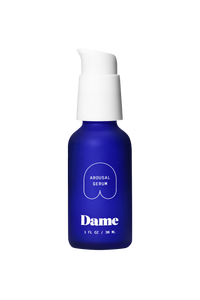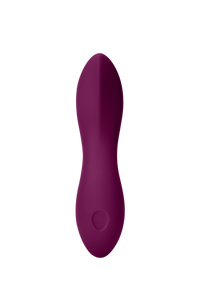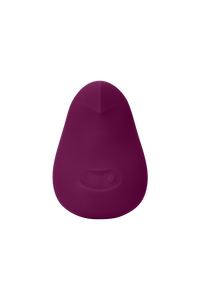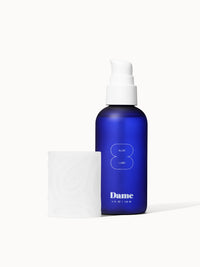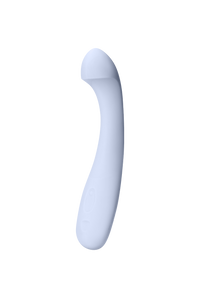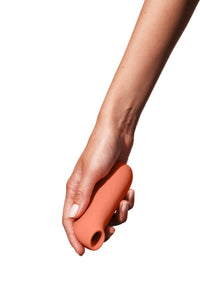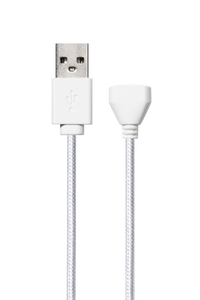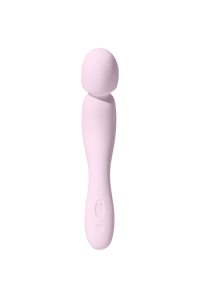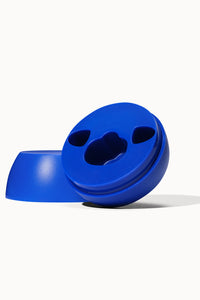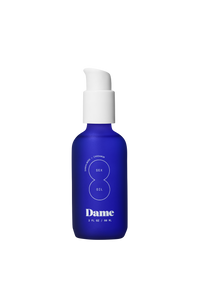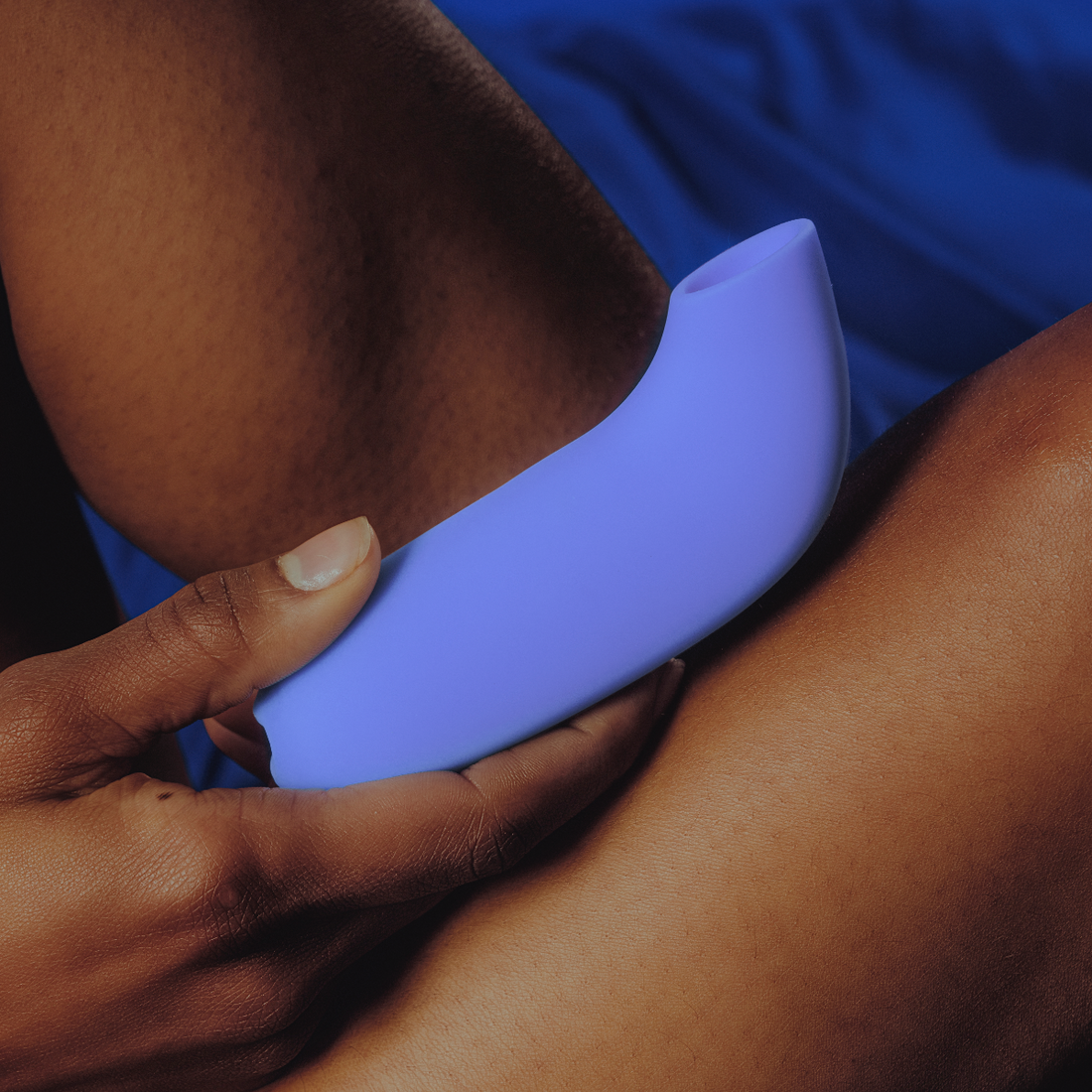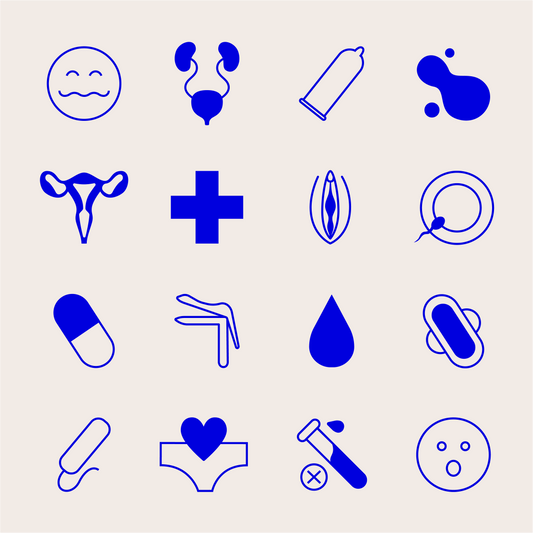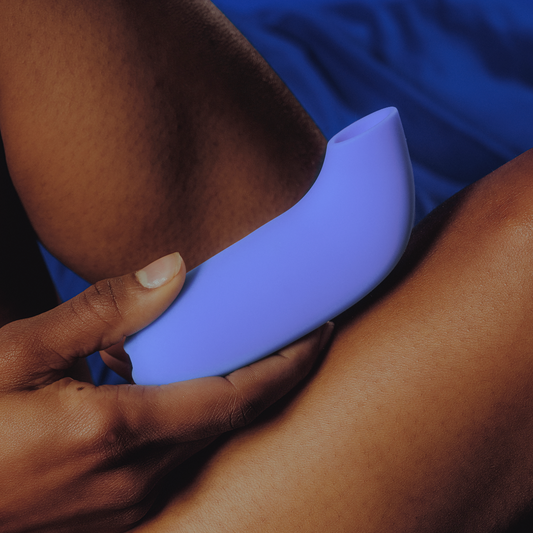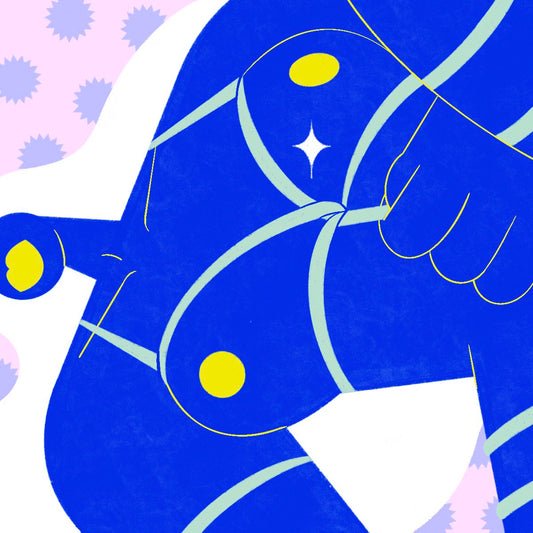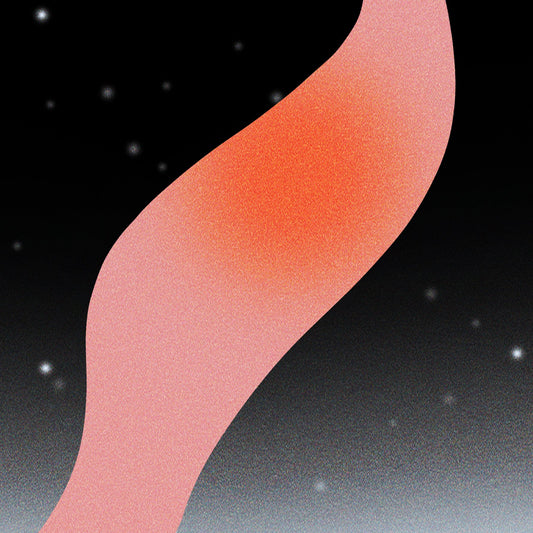Alexandra Fine, Credentialed Sexologist, M. Psych | Written by Dame
Doctors often use medical terminology, when they could simply use everyday terms that are easy to understand.
They say myocardial infarction. We say heart attack.
They say CVA. We say stroke.
They say malignant tumor. We say cancer.
And when they bring up the subject of libido? They’re really just talking about, as dictionary.com accurately defines it, “sexual instinct or sexual drive.”
Just about everyone who’s gone through puberty has a libido, even those who identify as asexual and those who have had some or all of their sex organs removed. Those people may not be able to (or want to) act on their urges, and they’re likely to have a lower sex drive, but their libido remains nonetheless.
Here’s the most important thing to know about libido: there’s no such thing as a “normal” sex drive. Everyone’s needs and desires are different.
Even so, having a low (or high) libido isn’t only an issue for the groups we’ve just mentioned. The Mayo Clinic reports that, for both vulva-havers and penis-havers, low sexual desire is among the most common of all sexual dysfunctions. There’s also evidence that libido issues affect those of all genders and orientations.
So exactly what determines libido? And can its level be changed?
Let’s find out.
The Term “Libido”
It’s often hard to figure out where a commonly-used term comes from. In this case, it’s not difficult at all.
Libido is derived from the Latin words for “desire” and “lust,” and the legendary founder of psychoanalysis, Sigmund Freud, began using the term in 1894. Freud admitted that he borrowed the idea from a fellow (and rival) psychiatrist, Albert Moll. But it was Freud who greatly expanded on the concept, and popularized it to the point where it became accepted as a crucial element of human motivation and behavior.
Freud believed that libido is a human instinct that’s associated with a person’s sexual urges and leads to sexual activity. He compared “libido and sex” to “hunger and nutrition,” natural drives that lead to activity and satisfaction. In the early 20th century Freud expanded on the concept, linking the libido to the development of human sexuality that begins in infancy and childhood.
In Freud’s view, the libido matures through early oral, anal and phallic stages, until finally reaching the “genital stage” in adulthood. And he believed that issues experienced during those early stages were largely to blame for human psychiatric symptoms and sexual dysfunction. Freud integrated the concept of libido with his bedrock theory explaining human behavior: the interaction between the id, ego and superego in the psyche. According to Freud, the libido exists in the id and is “regulated” by the ego and superego.
Other prominent psychologists saw the libido in different terms. For example, Carl Jung believed the libido included overall psychic energy rather than just sexual energy, and that sexuality only emerged in puberty.
Theories explaining the libido may be interesting – and important – to psychiatrists and sexologists. Most of us, though, aren’t really focused on theory. We’re more interested in how the libido guides our sex life, the day-to-day factors that affect libido, and what we can do when we think our sex drive is too low or too high.
Libido and a “Normal” Sex Life
We’re using the word “normal” in quotes because, as we’ve already mentioned, “normal” doesn’t really exist when referring to sexual drive and sex lives.
Some people naturally crave sexual activity, while others have much lower levels of sexual desire. A person’s libido can also be affected by their age and hormone levels, their physical and mental health, logistical or emotional complications in their everyday life, and the medical conditions they may be experiencing.
Here’s a deeper dive on some of the factors that can change a person’s “normal” sex drive.
Hormones
There are three primary sex hormones: testosterone, estrogen and progesterone, and both penis and vulva owners have all three in their bodies.
Sex hormones play roles in many other bodily functions as well, so changes in hormone levels can affect health and well-being in a variety of ways. For the purpose of this discussion, however, we’re only concerned with sexual health.
Vulva-Havers
You’re probably aware from personal experience that sex drive is usually lower near the end of an ovulation cycle. It’s when vulva owners have higher levels of progesterone and lower estrogen levels in their bodies; high progesterone levels can make you feel bloated and tired, and cause PMS. Low estrogen can cause temporary sleep difficulties and headaches. None of those are likely to make you feel eager for sex.
On the other hand, higher levels of estrogen are present when ovulation is about to occur, and estrogen is known to boost sexual arousal and libido. (If you need to be convinced, French researchers did an interesting experiment in a nightclub. Attractive penis-havers approached vulva-havers and asked them to dance; 60% of those in the fertile part of their cycle said “yes,” 65% of the others all said “no.”)
That’s believed to be a feature, not a flaw: increased sexual desire is the body’s way of encouraging reproduction during ovulation. It also explains why low libido is one of the common side effects of hormonal contraception, since birth control pills and similar methods cause the levels of sex hormones to remain stable.
Menopause brings with it a decreased production of estrogen. That causes changes in physical sexual function like vaginal dryness and hot flashes, which can “sabotage” sexual interest and desire. And just as in penis owners, testosterone levels (associated with energy levels) decrease with age; some believe that’s a major cause of decreased libido in the post-menopause years.
Penis-Havers
The key hormone here (as you know from never-ending TV commercials, if nothing else) is testosterone.
Testosterone levels in penis owners tend to decrease the day, meaning their libido is usually highest in the morning (hello, morning wood!) and lowest late at night. Testosterone levels normally decrease with age, as they’re highest in the puberty/teenage years and then slowly decrease over a long period of time. Low testosterone is the primary reason why penis-havers are more likely to have a low libido when they hit their later years.
Progesterone, and the form of estrogen known as estradiol, are also involved in penis-havers’ libido and sexual function, but play a much smaller role than testosterone in sex drive.
Physical and Mental Health
It probably doesn’t require detailed scientific and medical study to conclude that physical fitness has an impact on libido and sexual functioning, but researchers have done the work anyway. It’s clear that, on the whole, those who are physically fit have better sex lives in all ways.
There are similar research findings regarding the impact of mental illness on sexual drive and performance. However, there doesn’t have to be a diagnosable mental condition to impact libido; issues like mood, self-image and body image can also lead to a lower desire for sex. Previous, unsatisfying sexual experiences may lead to lower libido and an increase in sexual problems as well.
Medical Conditions and Medications
A number of medical issues and medication side effects can contribute to a low libido.
The lists are long. A low sex drive can be caused by heart disease and failure, kidney disease, diabetes, hypothyroidism, stroke, brain tumors, HIV, Addison’s and Cushing’s diseases are among the health conditions. The medications most often to blame are antidepressants like SSRIs, but the use of anti-anxiety, anticonvulsant, and high blood pressure meds like ACE inhibitors can also cause low libido.
Lifestyle Issues
The “usual culprits,” smoking, excessive alcohol use and drug use, can all be responsible for a lower sex drive. But stress can be a problem, too; difficulties at work, relationship problems and lifestyle changes are just some of the possibilities that can divert the brain (and body) from its natural focus on sexual pursuits and intimate relationships.
That’s a lot of possibilities, and they explain why most of us – at one time or another – are susceptible to a lowered libido.
What can be done to help?
Treating Libido Issues
An out-of-balance sex drive can cause big issues – whether the libido is “too low” or “too high.” However, people seek medical advice to deal with a low libido far more often than those who complain of a sex drive that’s too high. So we’ll start with low libido, after a quick word about diagnosis.
Diagnosing Libido Issues
It’s nearly impossible to properly treat libido issues without first figuring out what’s causing them. The initial step is making sure that there really is a problem; many mistakenly believe that their sex drive is abnormal, when they’re actually just comparing their libido to that of their friends or partner. If a person’s desire for sex is really lower (or higher) than it used to be, and the issue is causing either significant distress or difficulties in relationships, that’s a sign that it’s appropriate to seek treatment.
After that, effective treatment usually depends on identifying the problems that may have caused a change in libido. That could be possible with some honest self-reflection, or may call for the help of a medical professional or counselor.
Treating Low Libido
Medical evaluation is always the starting point for professionals treating low sex drive. A complete history is taken to screen for diseases, medication use and potential lifestyle issues, and appropriate changes are recommended if any red flags are detected.
In many penis-havers, the issue is either hypogonadism (low testosterone) that can be treated with testosterone replacement, or erectile dysfunction caused by one of the medical issues we’ve already mentioned. Proper erectile function and ejaculation is often restored with the use of psychotherapy and/or medications like Viagra or Cialis.
For vulva-havers whose low sex drive isn’t caused by medical conditions or medications, the issue is likely to be hormonal and treated with estrogen therapy. Other hormone treatments involving testosterone or DHEA are also possibilities.
If there’s no apparent lifestyle or medical condition causing the decrease in libido, it’s then treated as a mental health problem. A low sex drive is often diagnosed as either hypoactive sexual desire disorder or sexual aversion disorder. The first is an absence of sexual fantasies and desire for sex; the second is defined as an extreme aversion to and avoidance of genital sexual contact.
Talk therapy, kegel exercises (to increase blood flow to the genitals), honest discussion with a partner aimed at illuminating and easing issues that may exist, and even watching porn and masturbating, are approaches that therapists and healthcare professionals might suggest. Medications like Addyi are sometimes used to increase sexual desire in vulva owners as well.
Treating High Libido
Most people might say that having a libido that’s too high isn’t a problem, it’s a blessing. That’s not always true. A sex drive that crosses the line from “very healthy” to compulsive can cause major personal life problems. The issue is known medically as OCSB (out-of-control sexual behavior), or hypersexuality.
Once again, medical issues – in this case, high levels of mood-regulating brain chemicals like serotonin and dopamine, epilepsy, dementia, or Parkinson’s disease medications – may be to blame. Medical intervention could be indicated; otherwise, psychotherapy is the preferred approach for an out-of-control libido.

